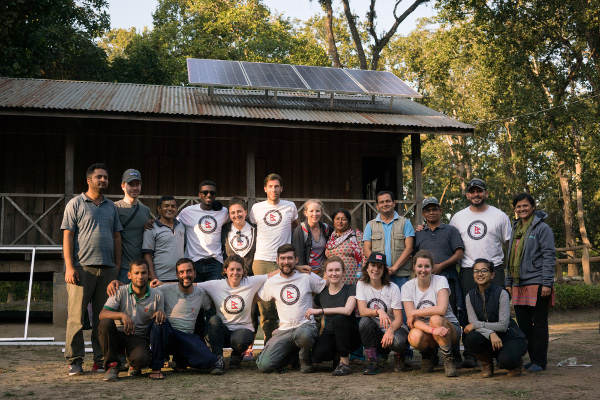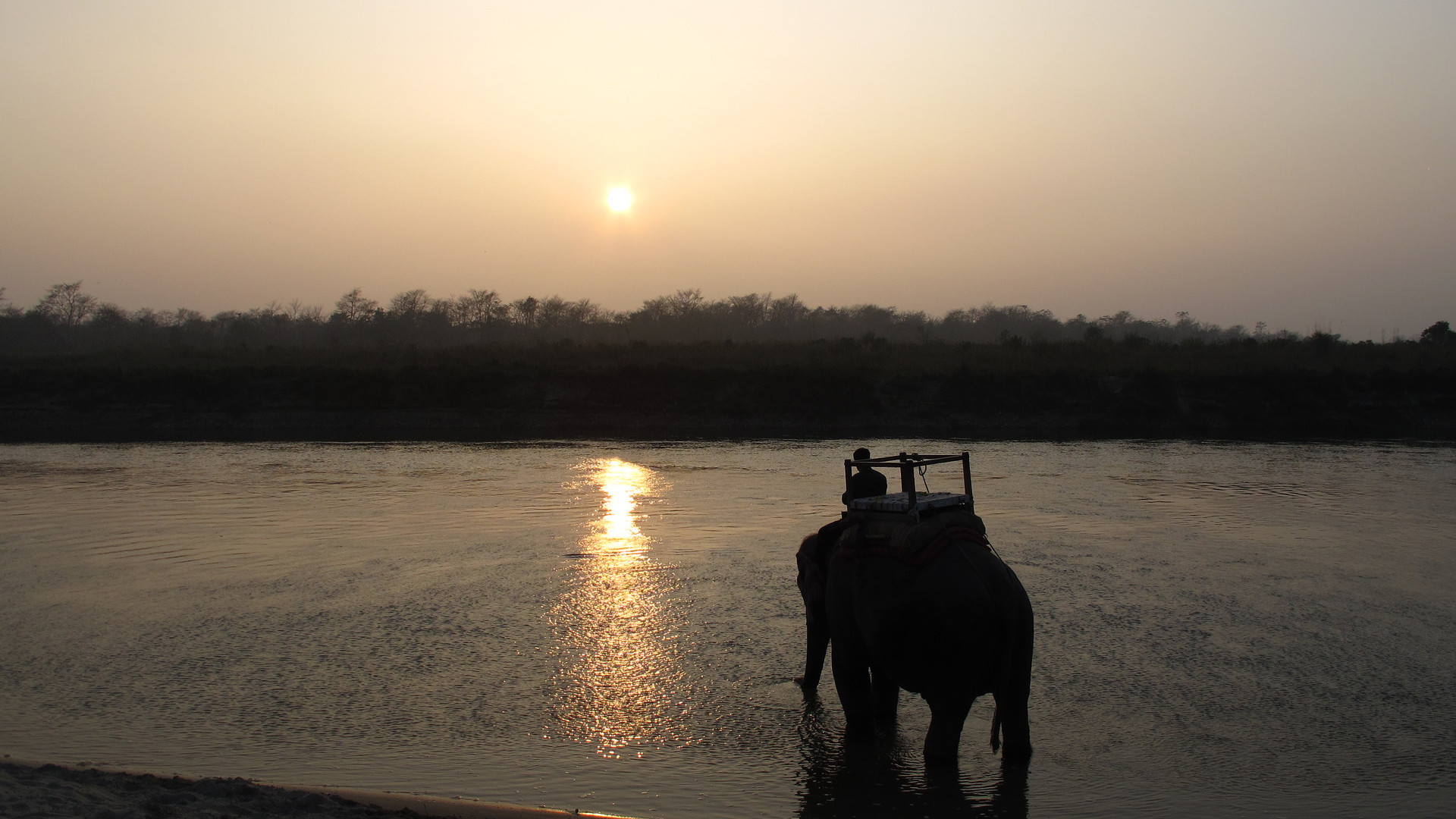Imagine dedicating your life to protecting endangered tigers and rhinos from poachers in the remote forests of a country like Nepal. Not only do you find yourself living hours away from your family for months at a time, you have no way to stay in contact with them. Your ranger station sits nowhere near a power line or other infrastructure, so your mobile phone — your lifeline — becomes useless after just a few days. Meanwhile you spend your nights in the dark, without even electric lights to keep you company.
A new project is helping to solve that problem. Two organizations called Empowered by Light and Empower Generation have installed a solar energy system on top of a remote ranger station in Nepal’s Chitwan National Park, providing the wildlife defenders who live and work there with electricity, light and an ongoing opportunity to stay in touch with their loved ones and professional support staff over their fully charged mobile phones.

That’s not all. The two organizations are also helping to train disempowered Nepali women who live near the park to become solar-powered entrepreneurs. The women sell solar lanterns to other women and small businesses in areas that lack reliable access to power, allowing people to continue working after the sun goes down.
The organizations, which are currently expanding their projects, have just released a short film about their work. It illustrates not just the potential solutions of solar power but the challenges in implementing it. The film also illuminates a world of conflict, where humans and wildlife struggle for the same resources — and where the people living around a pristine World Heritage site yearn for energy and development that will improve their lives without hurting the wildlife around them.
Check out the film below, in both 3-minute and 19-minute versions.
Related:
Drawdown: 100 Powerful (and Sometimes Surprising) Solutions to Global Warming



I don’t know if this is a good idea. While we obviously should support wildlife protectors and should support solar energy over more destructive sources, bringing unnatural light to natural areas is a bad thing. Light pollution already interferes with some wildlife’s natural cycles and instincts (newly hatched sea turtles, and birds, for example), and makes it impossible for humans and other species to see all of the stars we would naturally be able to see. And it’s just, well, unnatural.
This is not a clearcut issue, because if people would refrain from becoming rangers because of lack of electricity, that has to be weighed against the harms from light pollution. So no clear position here, but I’m not thrilled with this either.
I’d like to add another innovative way solar power is being used in Nepal — to free the government-owned elephants used in anti-poaching patrols from chains. Upon the invitation of the government of Nepal, Elephant Aid International (EAI) converted all 15 of its hattisars (elephant facilities) to chain free by building solar-powered chain-free corrals —
https://elephantaidinternational.org/projects/chain-free-means-pain-free/
There are still bugs to work out — for instance, since elephant bulls’ tusks don’t conduct electricity, they can easily snap the wires. EAI will do a pilot project to build a corral using steel pipes, which will safely contain bulls and also protect them from wild bulls —
https://elephantaidinternational.org/projects/the-lambodhar-prasad-project-freeing-nepals-chain-gang/